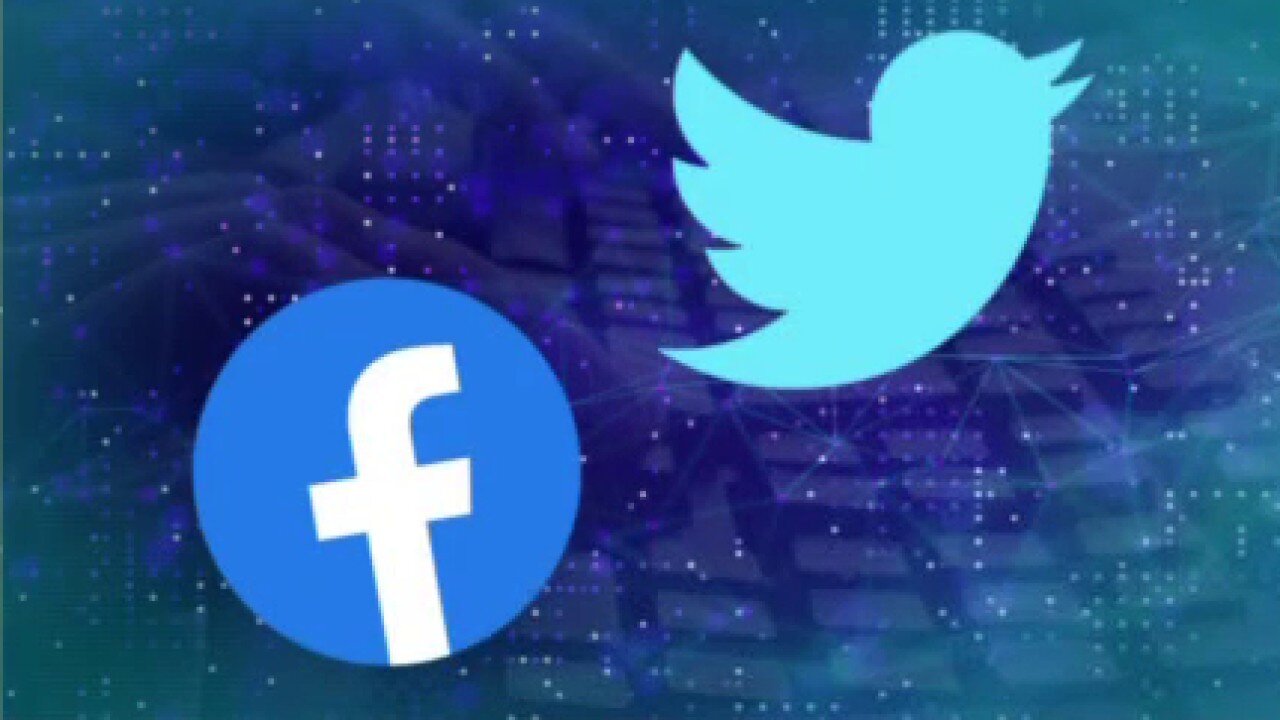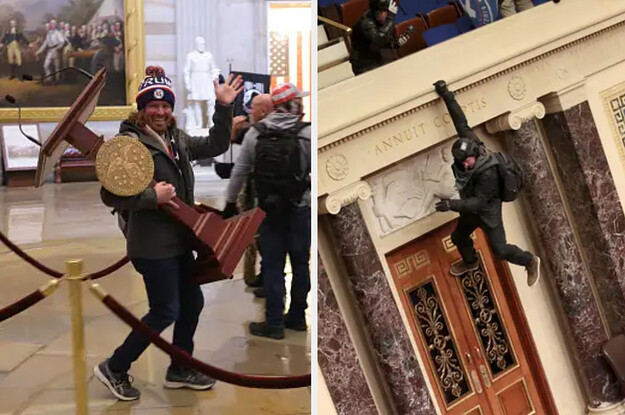.President Trump wants to remove legal protections from social media companies that safeguard them from liability for false and defamatory material posted by others on their sites. Twitter and Facebook have now shut his accounts..President Trump wants to remove legal protections from social media companies that safeguard them from liability for false and defamatory material posted by others on their sites. Twitter and Facebook have now shut his accounts.FeedzyRead More
Full content below:
With 88 million Twitter followers and 33 million Facebook fans, you might assume President Trump would be quite popular with the social media giants. His frequent posts have made news almost every day since he first ran for president, driving traffic to the two platforms and giving them enormous free publicity and a big revenue boost.
But Trump and the social media giants are in fact adversaries rather than allies. Twitter permanently suspended the president’s account Friday, a day after Facebook suspended Trump’s account indefinitely.
Both companies claimed they are worried about Trump’s posts inspiring violence, after some of his supporters rallying on behalf of his claim to have won the November election marched to the U.S. Capitol and staged a riot Wednesday that left five people dead.
But there’s more to the story.
Trump has complained frequently about anti-conservative bias by Big Tech that influences the prominence given to news stories and other posts. He has been determined to change a previously obscure section of a law that gives the social media companies protection from legal liability for what users post.
While a newspaper or a TV or radio station or network can be sued for publishing or airing false and defamatory material, the Big Tech companies enjoy immunity. A person posting libelous material can be sued, but the social media companies cannot, except for content the companies post themselves.
The section of law in question is called Section 230 of the Communications Decency Act of 1996. It is like a shield protecting the Big Tech companies from costly lawsuits and is extraordinarily valuable to them.
But if knocking Trump off Twitter and Facebook was designed to save Section 230 it likely won’t have much impact. President-elect Joe Biden might wind up launching his own effort to make changes to Section 230 once he moves into the White House on Jan. 20.
Twitter boasts that “our public interest framework exists to enable the public to hear from elected officials and world leaders directly.” And recently, everyone from Secretary of State Mike Pompeo to Iran’s Foreign Minister Javad Zarif has used Twitter to put out succinct statements in real-time. Keeping the leader of the world’s most powerful nation off the site is a bit of an omission.
Last May 28 Trump first asked the Federal Communications Commission to reconsider Section 230 protections. And in a remarkable coincidence, Twitter “fact-checked” Trump’s tweets for the first time that same week. Hmm…
And for weeks now, most of Trump’s tweets about the election have borne monitoring labels from Twitter.
Maybe Twitter and Facebook never envisioned becoming a direct outlet for official statements from the leader of the free world.
Most of the user posts on Twitter and Facebook don’t center on politics. One Pew survey found only 13% of tweets from U.S. adults were focused on national politics. Certainly, Twitter founder Jack Dorsey and Facebook founder Mark Zuckerberg originally built their services for micro-blogging, social connections, dating, and sharing hobbies and interests.
Then came Trump. Twitter owes a lot to him. In March 2016, the company’s stock price was plummeting and Twitter was seen by Forbes as a “media juggernaut turned train wreck” coming off two rough years.
Trump’s use of Twitter in his 2016 campaign and presidency catapulted the company to the center of world diplomacy and U.S. politics. Like it or not, Twitter is now a major news source for millions of people, not just a platform for chitchat between friends and family.
In fact, in a social media activity comparison, 56% of those surveyed used Twitter for news, with Facebook second at 38% and partner Instagram at 18%.
Sadly, the CEOs of Twitter and Facebook crossed the line by barring Trump from their sites and are now in violation of the spirit of Section 230. It’s impossible for the companies to claim they simply carry posts without any control — the way a phone company carries calls — while at the same time making editorial judgments about who and what can go onto their sites.
Twitter banned Trump after “a close review of recent Tweets.” That was a plain old judgment call by Twitter. Facebook and Instagram (owned by Facebook) suspended Trump in anticipation of what he might do in his final days in office.
Maybe these moves were well-intentioned, as the companies reacted to the horrific riot at the Capitol. However, it’s past time for executives of Twitter, Facebook and YouTube (owned by Google) to think hard about their roles in civil society.
It’s been too easy for tech founders to act on their own initiative. At the same time, social media dominance has hurt older and more diverse information sources, such as local newspapers, by eating into advertising revenue. That puts a lot on the narrow shoulders of these entrepreneurs.
Time is running out for Big Tech. Biden could be coming for Zuckerberg.
“I, for one, think we should be considering taking away Facebook’s exemption that they cannot be sued for knowingly engaged on, in promoting something that’s not true,” Biden said in the CNN debate on Nov. 11, 2019.
On Jan. 17 last year, Biden told The New York Times that Section 230 “immediately should be revoked, number one. For Zuckerberg and other platforms,” adding Facebook “is not merely an Internet company. It is propagating falsehoods they know to be false.”
CLICK HERE TO SIGN UP FOR OUR OPINION NEWSLETTER
Last Dec. 10, House Speaker Nancy Pelosi, D-Calif., said: “I don’t like Section 230, I think it needs to be revised,” although she balked at outright repeal.
Trump, Biden, and Pelosi complain about Section 230 for different reasons, but the warning is clear. Big Tech’s days of being protected behind the shield created in 1996 are numbered. The Internet was relatively tiny back then and not a major news source. Facebook wasn’t even founded until 2004. Twitter was founded in 2006
Applying a law passed when the Internet was in its infancy to social media companies today is like applying traffic laws enacted in the 1890s to modern superhighways.
CLICK HERE TO GET THE FOX NEWS APP
We need to look at Twitter and Facebook’s banning of President Trump in the light of the feud they have been waging to fully understand what is taking place.
Now the Tech Titans are almost cornered and they are striking back in Trump’s final days in office. Their actions should scare you no matter what your politics. If Twitter and Facebook are willing to shut down the president’s account, how can the rest of us express our opinions and access a diversity of news and information?







